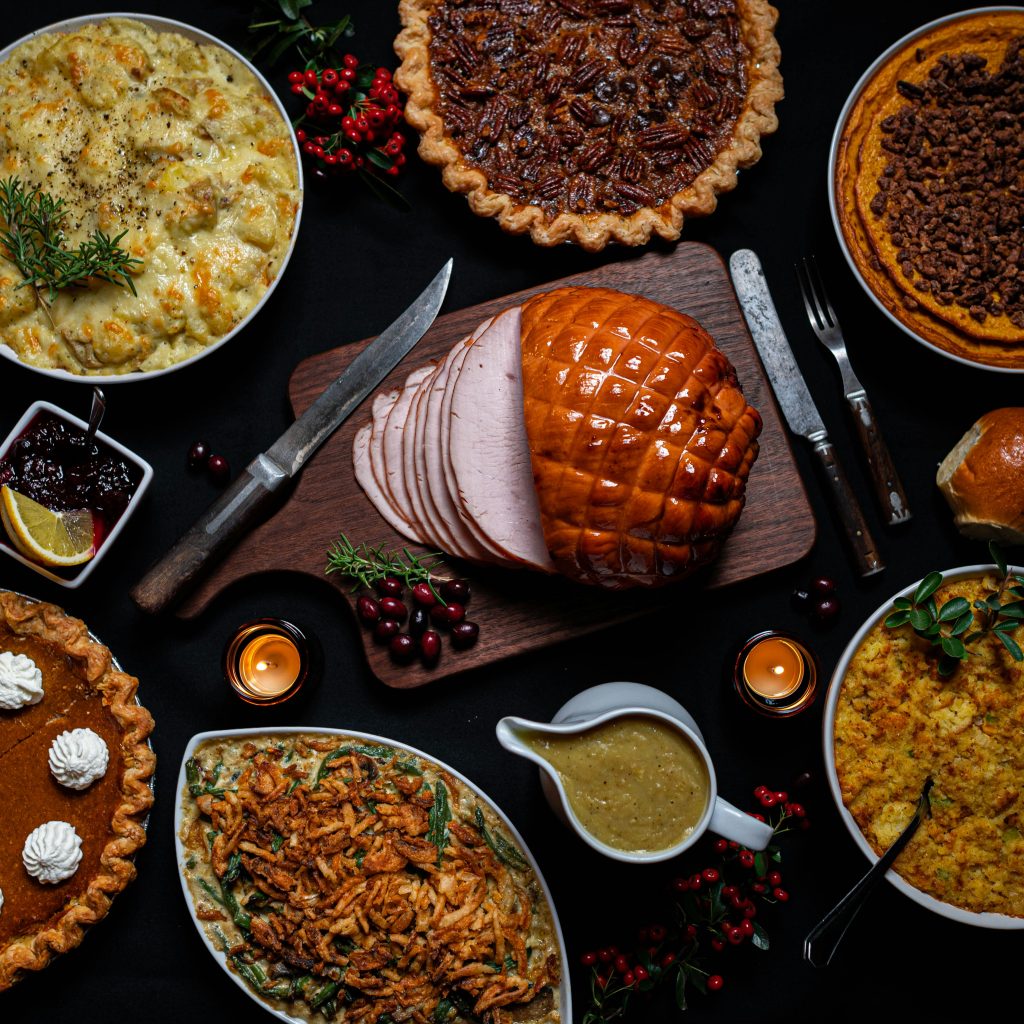The latest research by Lightspeed Commerce Inc. has revealed that David Attenborough is the top fantasy dinner guest around the dinner table this Christmas, with over a quarter (28%) of survey respondents voting for the environmental advocate, underscoring the growing appeal of eco-conscious dining. Princess Diana (21%) and Johnny Depp (19%) fall within the top three, illustrating the social allure of having a good gossip over a meal at Christmas time.
The festive season often encourages diners to be more giving and generous, as many people feel compelled to tip more as part of societal norms or because they don’t want to seem “stingy” during the season of goodwill. The research has revealed that diners are planning to tip 7.5% more than usual this Christmas.
The research also highlights that during the 2022-2023 Christmas season, the number of restaurant transactions fell by 2.59% compared to the rest of the year(*1). This drop could largely be due to increased closures and public holidays and many people choosing to spend time with their families.
However, there’s positive news for restaurant owners, as those who do dine out tend to splurge. The average spending per meal rose by 24.49%, increasing from £49 on regular days to £61 during the festive period, while average spending increased by 13.64%, reaching £25 (up from £22 on standard days)(*1). For restaurant owners, these figures highlight that the holiday season offers a prime opportunity to showcase exceptional offerings. When UK diners eat out during the festive season, they can seek to create a special experience by opting for gourmet menus, unique experiences, and festive drinks.
Eco practices have become a firm priority this Christmas, with 90% of respondents believing it is important for the hospitality industry to adopt sustainable practices. The consumers polled are also willing to spend an average of 9% more, when visiting establishments that champion environmental responsibility – a preference that aligns well with recent economic pressures on businesses to save on costs.
The study also revealed that 88% of diners are likely to recommend a hotel or restaurant that offers tailored experiences during the Christmas season. From personalised greetings (39%) as seen in London’s Nobu and Dishoom, to custom room or bespoke table requests (37%), personalised services are set to be a determining factor in guest satisfaction for repeat customers to visit a restaurant or hotel in the future.
Social media also continues to impact hospitality, though its influence varies across age groups. While 52% of all respondents reported visiting a venue based on its online presence, this figure climbs to 85% among those under 30, underscoring the role of digital platforms in attracting younger diners. However, consumers remain cautious about tech-driven personalisation; 74% of all respondents are uncomfortable with AI-driven data collection, suggesting a need for careful and transparent use of technology.
Reinforced by a 2024 Bidfood (*2) study citing a desire for ‘new and authentic food experiences’, Lightspeed research finds that diners are eager to try innovative dishes in 2025, like Mexican lasagne (34%), Korean tacos (29%), and curry pizza (29%), with unique, immersive experiences anticipated to be a growing draw.
Liam Crooks, MD of EMEA at Lightspeed says, “As we look to the future of hospitality, it’s clear that personalisation and sustainability are no longer optional – they’re essential to creating exceptional guest experiences and giving businesses the edge they need in order to stay ahead of the changing economic landscape. This shift in consumer preferences highlights the need for the hospitality industry to innovate and adapt, whether through unique dining experiences, tailored guest interactions, or environmental responsibility. The trends we’re seeing today, from solo dining to the rise of immersive experiences, signal a vibrant, evolving future for the hospitality industry.”
“Great restaurants and hotels need to concentrate on the things that matter and innovation in technology allows businesses to handle the vital back of office and out of sight stuff. It enables businesses to focus on the personalised experiences that keep people coming back for more. The hospitality industry is a cornerstone of our culture and, despite the pressures on businesses going into 2025, the demand for a great experience to share good food and good company has never been more important” – William Sitwell, Restaurant Critic and Journalist.



